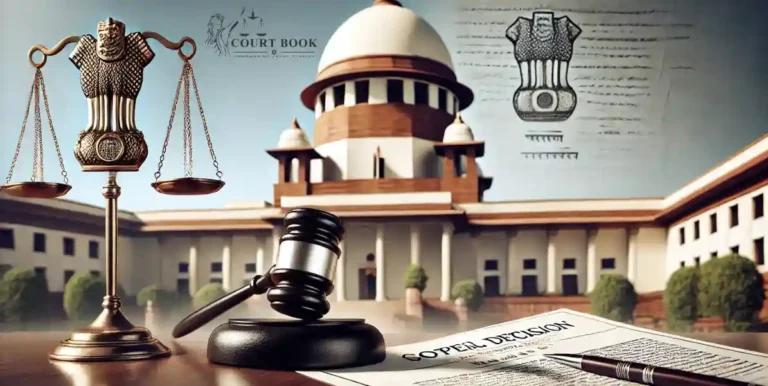The Supreme Court of India recently ruled that a party remains accountable for violating an injunction order while it was in force, even if the order is later revoked. This significant judgment was delivered by a bench comprising Justices Pankaj Mithal and Sanjay Karol in the case of SMT Lavanya C & Anr vs. Vittal Gurudas Pai (Deceased) & Ors.
The case revolved around Order 39 Rule 2A of the Civil Procedure Code (CPC), which specifies actions against those who disobey injunction orders. The ruling reaffirmed the principle established in Samee Khan v. Bindu Khan (1998) 7 SCC 59, where it was held that
“even if the injunction order was subsequently set aside, the disobedience does not get erased.”
Background of the Case
The dispute originated when the appellants, despite their undertaking before the trial court, sold portions of the suit property between 2007 and 2011. The respondents then filed an application under Order 39 Rule 2A CPC, seeking action against the appellants for violating the court’s directive.
Read Also:- Supreme Court: Suicide Note Alone Cannot Prove Guilt Without Clear Abetment
Initially, the trial court dismissed the application, stating that the respondents had failed to prove willful disobedience beyond a reasonable doubt. Furthermore, the trial court dismissed the original suit, citing ambiguities in the property description. However, upon appeal, the High Court reversed the decision, holding the appellants guilty of contempt of court and imposing penalties, including imprisonment and property attachment.
In addressing the appeal, the Supreme Court examined the interplay of Order 39 Rule 1, Rule 2, and Rule 2A CPC. The court emphasized that an injunction order, even if later dismissed, remains valid during its pendency and must be followed.
“The disobedience of an injunction order is not erased merely because the original suit is subsequently dismissed.” – Supreme Court
Read Also:- Supreme Court Directs Comprehensive Tree Census in Taj Trapezium Zone
The Court ruled that the appellants could not evade liability for breaching their undertaking. The judgment reinforced that any violation of a court order during its effective period constitutes a separate offense, independent of the suit's final outcome.
Final Verdict and Key Takeaways
- The Supreme Court upheld the High Court’s ruling, confirming that the appellants had willfully violated their undertaking.
- While the three-month imprisonment for contempt was set aside considering the appellant’s age, the Court increased the compensation from Rs. 10 lakh to Rs. 13 lakh, with 6% interest from August 2, 2013.
- The ruling underscores the significance of adhering to court orders and the judiciary’s commitment to ensuring compliance with interim injunctions.
This judgment serves as a strong precedent for future cases involving injunction violations, reaffirming that parties cannot escape liability by merely securing a later dismissal of the injunction order. The Supreme Court’s stance reiterates the necessity of respecting judicial directives, reinforcing the integrity of the legal system.
Case Title: SMT Lavanya C & Anr vs. Vittal Gurudas Pai (Deceased) & Ors.














